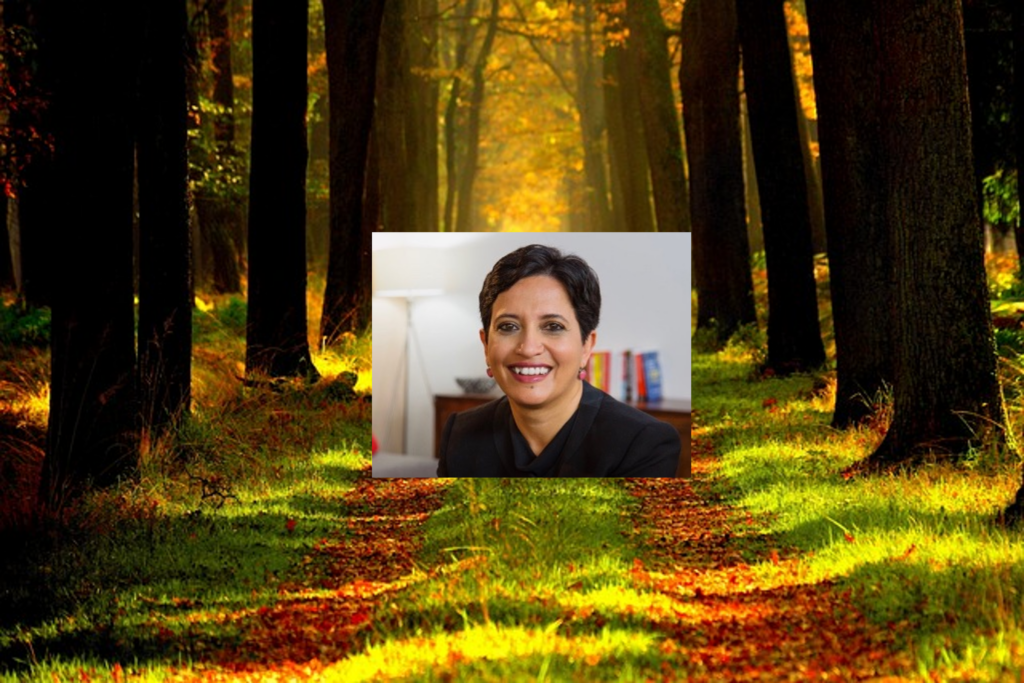Entrepreneur Journeys
The Startup Velocity Question: What Hinders Acceleration in VC Funded Companies?

I have been running 1Mby1M since 2010. I find myself saying to entrepreneurs ad nauseam that VCs want to invest in startups that can go from zero to $100 million in revenue in 5 to 7 years.
Startups that do not have what it takes to achieve velocity should not be venture funded.
Experienced VCs, over time, have developed heuristics to gauge what constitutes a high growth venture investment thesis.
>>>1Mby1M Udemy Courses with Sramana Mitra: Bootstrapping

Over the course of two years, we have released over 70 courses on Udemy with the aim to democratize entrepreneurship education at scale globally. This series of posts aims to help you find the one you need easily and provide you with discount coupons.
>>>Building a Cool Technology Company from Chicago: Narrative Science CEO Stuart Frankel (Part 1)
Some of what you’ll read in this interview will seem like science fiction. But please read on!
Sramana Mitra: Let’s start at the very beginning of your personal journey. Where are you from? Where were you born and raised, and in what kind of circumstances?
Stuart Frankel: I was born in Cincinnati, Ohio. I was the middle kid with a sister on each side. I went to public high schools and ultimately to Miami University in Oxford, Ohio, which is about an hour from Cincinnati. I started as an Economics major but ended up being an accounting major. Then, I moved to Chicago and became a CPA and worked for PricewaterhouseCoopers for the first few years of my career.
Sramana Mitra: In terms of chronology, what years are we talking?
>>>
Featured Videos
Can 1M/1M Help Me Raise Money?
How Does 1M/1M Democratize Entrepreneurship Education?
How Does 1M/1M Democratize Management Consulting?
When Is The Right Time To Join 1M/1M?
Can 1M/1M Help Me With Business Development?
Can 1M/1M Help Me With Market Sizing?
Can 1M/1M Help Me Validate My Product?
Will I Have Private 1-on-1 Sessions In 1M/1M?
How Does 1M/1M Help Entrepreneurs Connect With Silicon Valley?
Mentoring or Consulting?
Why Does 1M/1M Charge $1000 a Year?
Why Does 1M/1M Partner With Local Organizations?
Why Don\’t Mentoring Networks Work?
Why Is It Important To Study With 1M/1M Now?
Dan Stewart Story
Vikrant Mathur Story
Unicorn in the Making: Avi Steinlauf, CEO of Edmunds.com (Part 1)
As you may know, we just launched a book called Billion Dollar Companies profiling the journeys of entrepreneurs building massive businesses. Edmunds.com may just be another unicorn.
Sramana Mitra: Where does your journey begin? Where are you from? Where were you raised and in what kind of circumstances?
Avi Steinlauf: Originally, I was born in London, England. For those folks from the UK or familiar with the UK, I’m a cockney by right given the fact that I was born within the sound of the Bow Bells, even though the accent that you hear is nothing like an English accent. I really grew up here in Southern California and spent most of my schooling here in the United States. >>>
Concept-Financing $8.5 Million: Gaurav Rewari, CEO of Numerify (Part 1)
If you haven’t already, please study our Bootstrapping Course and Investor Introductions page.
Gaurav has deep domain expertise in the BI space, something he has leveraged to concept-finance a new venture to the tune of $8.5 million. Read how he is building the company, especially how he has positioned the company. Fast growth businesses only happen if you can position them right to begin with.
Sramana Mitra: Where are you from? Where did you grow up? What’s the beginning of the story?
Gaurav Rewari: I was born in Bombay, India, as it was called then. I grew up and did my schooling in Bombay. I then moved to the US after high school. I was fortunate enough to earn a scholarship to MIT. I went there for undergraduate work and stayed on to do graduate work as well. I was there from ’80s to mid-’90s. After that, I joined a startup called MicroStrategy based out of Delaware. It was a company started by an MIT graduate senior to me. It had about 13 to 14 people. I was thinking of doing a Ph.D. so I interrupted that to join a startup just to get a feel for what it was like. I’d initially thought that I would do that for one year. That one year never ended. >>>
Bootstrapping in Minnesota: Praful Saklani, CEO of Pramata (Part 1)
Minnesota seems to be developing well as a hub for tech startups. With a strong culture of bootstrapping, we’re seeing a lot of entrepreneurs building high growth businesses.
Sramana Mitra: Let’s start at the beginning of your personal journey. Tell me a bit about where you were born and raised and in what kind of circumstances.
Praful Saklani: I was actually born in the United Kingdom. My family is from North India. When I was four years old, we moved from the UK to Minneapolis. Throughout that whole process of growing up in Minnesota, I also traveled back to India, at least, once every two years. We’d spend a lot of time with my family there. I would say that I actually grew up both in the US and India. Even when I visit India, I would actually spend time in villages and up in the mountain. It’s a nice broad perspective of a good mid-western upbringing and a good north Indian upbringing too. That’s a bit of a cultural context.
Sramana Mitra: I spoke to somebody else who’s from rural Minnesota who has built a $5 million company with no outside financing just before you. >>>
Bootstrapping to $55 Million from Rural Minnesota: Tom Fallenstein, CEO of Fun.com (Part 1)
Tom has built a kick-ass e-commerce company out of rural Minnesota that he hopes to build up into a billion dollar business.
Sramana Mitra: Let’s start with your personal journey. Where are you from? Where were you born and raised, in what kind of environment?
Tom Fallenstein: I was born in Minnesota in a small town about an hour and a half south of Minneapolis. I’ve lived here all my life. I grew up just outside of the city. I went to school in Mankato for Computer Science and Graphic Design. Our mom was a seamstress. We loved Halloween. We always had the best costumes when we were little. When we got older, all of our friends wanted to borrow those costumes, so my sister decided to rent them out. That’s how the business started. >>>
Making Mass Customization Work: Jodie Fox, CEO of Shoes of Prey (Part 1)
Mass customization has been the holy grail of the fashion industry ever since the Internet was born. Jodie Fox discusses why mass customization is so hard, and how her company is scaling a business that offers custom shoes.
Sramana Mitra: Let’s start at the very beginning of your story. Where are you from? Where were you born, raised, and in what kind of background?
Jodie Fox: I was born in a small country town in Australia. I was raised by a Sicilian mother and an Australian father. I was the first person in my family to go to university. Both my parents came from very humble backgrounds and worked really hard so that my sister and I could have a good education. It was very challenging to decide what I wanted to study. I was torn between my more artistic side and my more academic side. >>>
Raising Money From 75 Angels: Manmeet Singh, CEO of Dataguise (Part 1)
I have never seen a company raise so much money from so many angels. It is far from standard practice in the industry, but Manmeet did it! Find out how…
Sramana Mitra: Let’s start at the very beginning of your story. Where are you from and where were you raised? Give me the back story of your entrepreneurial journey.
Manmeet Singh: I’m from New Delhi, India. I did my education back in India. In about a year, I came to the US as a programmer for HCL. Since then, I’ve been in the IT field, working for large companies. In 1999, I made a move towards startups. I learned how >>>
Founding Elance, then Webaroo: Beerud Sheth’s Entrepreneurial Journey (Part 1)
Beerud Sheth founded Elance back in 1998. At the time, the concept was new and path breaking. Today, with freelancing becoming a gigantic part of the global workplace, the company is playing a massive role in matching businesses with service providers. You can also read our interview with Fabio Rosati on Elance’s evolution.
Today, Beerud is on his second company, Webaroo, which in turn, is on its second mobile messaging product.
Sramana Mitra: Let’s start at the very beginning of your story. Where are you from? Where were you born, raised, and in what kind of circumstances?
>>>
Bootstrapping Using Services: FullBottle CEO Reed Berglund (Part 1)
Continuing with our Bootstrapping Using Services theme, FullBottle is an interesting social media marketing venture that taps into the reach and engagement capacity of influencers to attract customers.
Sramana Mitra: Let’s start at the very beginning of your story. Where are you from? Where were you born, raised, and in what kind of circumstances?
Reed Berglund: I was born in Manhattan and then moved to Los Angeles. I grew up in Los Angeles. I have a mixed European background and both my father and mother worked in media.
Sramana Mitra: What about school? Did you do all of it in Los Angeles?
>>>
Bootstrapping in Pennsylvania: OnSIP CEO Mike Oeth (Part 1)
The theme of entrepreneurs building robust companies without outside capital continues in the story of OnSIP.
Sramana Mitra: Let’s start at the beginning of your personal story. Where were you born, raised, and in what kind of circumstances?
Mike Oeth: I was born in the MidWest, specifically in Speedway, Indiana. It’s the home of Indianapolis 500. I was very lucky in my early life to have three mentors who helped shape different parts of who I am. First, obviously, is my dad. He is a mechanical engineer and electrical engineer. He’s retired now but he had worked for General Motors. He was designing aircraft engines. He was very supportive when, in the seventh or eighth >>>
